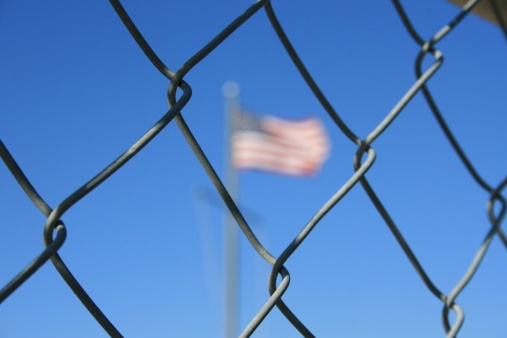By Ambassador Daniel Speckhard
Two years ago, a spike in the number of children crossing the border into the United States from the Central American nations of El Salvador, Guatemala and Honduras pricked the conscience of our nation.
Although the flow dipped last year, U.S. border officials are reporting that the apprehension of accompanied minors is once again on the rise. There is no reason to think this northward movement won't continue or even increase unless we deal with the migration "push factors:" the endemic violence, corruption and impunity, as well as economic underdevelopment that plague the region.
Fortunately, we are facing a transformational moment in which Central Americans, with our support, can respond to these challenges
I recently visited the region and saw auspicious signs of change. Civil society groups and citizen protestors are demanding reforms, and some judges and prosecutors are taking action against corruption. Just the last year has seen the ouster of the Guatemalan president and vice president over allegations of corruption. Honduras has adopted a commission against corruption and impunity similar to the one -- supported by the US -- that has been so effective in Guatemala.
These winds of change come as the U.S. is making a major investment in the region, not only to improve security, but also in the form of the $750 million strategy supporting Central American governments and societies writ large to reduce violence and spur economic development. Congress conditioned these monies on the three governments taking steps on migration, rule of law and transparency. If targeted wisely, this infusion of aid can make a big and lasting impact.
While much of this assistance is understandably focused on urban areas where violence is most apparent, this US government aid also needs to provide significant support to struggling rural communities, where El Niño has caused prolonged drought and plant diseases like coffee leaf rust have increased the poverty of many small-scale farmers. The result: young people seeking opportunity are leaving rural areas in droves.
Targeted investment addressing these push factors can help stem this flow. One example is the Cocoa Alliance in El Salvador, an effort supported by Catholic Relief Services and Lutheran World Relief that combines U.S. tax dollars with private philanthropy helping to link small-scale farmers with regional and overseas markets, which can significantly boost their incomes. If successful, this initiative will generate jobs and economic development in the "migrant- exporting" rural zones that will keep families and communities intact.
The inclusion and strengthening of civil society groups and rural municipalities will be a key factor in ensuring accountability and transparency. The consultation required by Congress and citizen assemblies working to inform and oversee municipal budgets are means to ensure good intentions and funding translate into sustainable impact for the communities at risk for violence and migration. Local groups must lead with "demand-side governance" and activism that insists on accountability and pragmatic means for involving local communities under threat from gang violence. But others, including U.S. faith-based organizations and NGOs, can support them. While a more inclusive development may take time, the complex knot of problems in the region requires a patient bottom-up approach in both urban settings and rural communities.
Obviously we do not want to encourage more to embark on this dangerous journey, but our humanitarian principles should impel the United States to fulfill its moral obligation to protect, not punish, children who are fleeing persecution in their homelands or who are often victims of trafficking. This means ending the practice of family detention for those who make it to the U.S. border, providing access to legal counsel to those facing deportation, and better screening by U.S. border officials to identify and provide protection for asylum seekers and trafficking victims.
Finally, we urge the Administration and Congress, this one and the next, to make a continuing commitment to this transformation in the Northern Triangle of Central America. The $750 million that Congress already approved for FY 2016 is only now beginning to flow to the region, as the end of the fiscal year rapidly approaches. But the fact that it's taken time to actually get funding to programs on the ground does not mean that we should cut funding looking forward, even as we continue to monitor the effectiveness of aid and promote innovative solutions.
We echo the words of a USAID official who -- with a nod to Colombia -- counseled "strategic patience." We need to continue our commitment to the key priorities that will make a difference over the long haul.
Let's support the courageous voices who are demanding better leaders and dreaming of safer, more prosperous communities where their children can see a future.
Ambassador Daniel Speckhard (rt.) is president and CEO of Lutheran World Relief, an international humanitarian organization. He previously served in both Republican and Democratic administrations as ambassador to Greece and to Belarus, deputy chief of Mission in Iraq, and a senior official at NATO.

